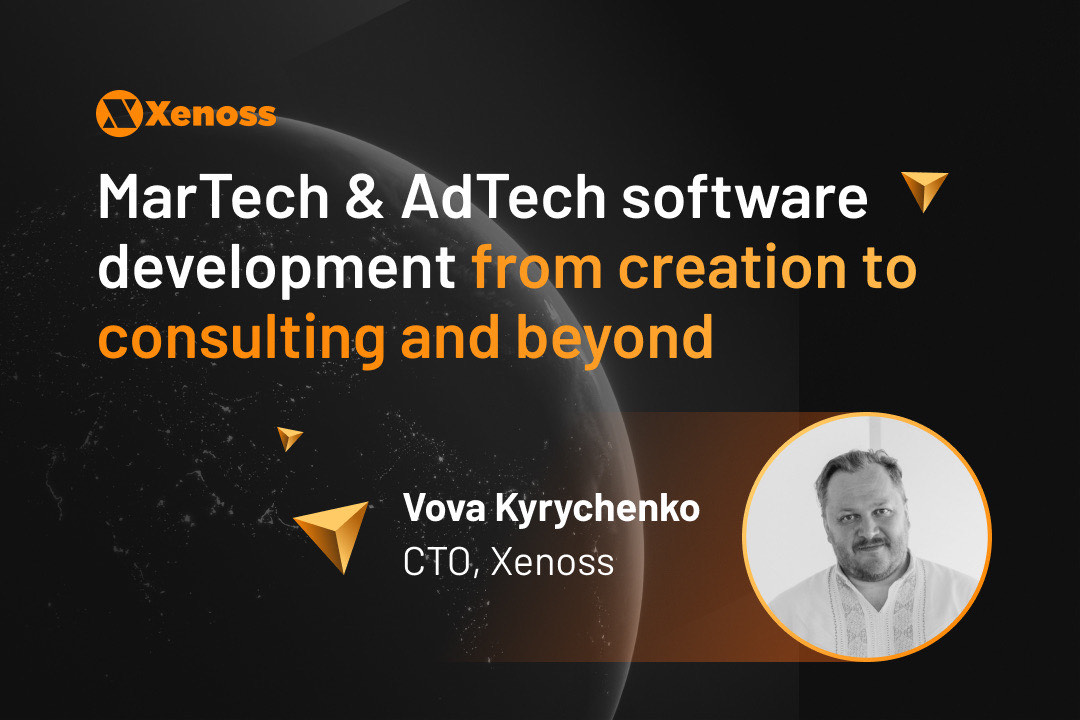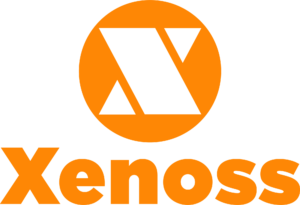AiThority Interview with Vova Kyrychenko, CTO at Xenoss

Hi Vova. Welcome to our Interview Series. Please tell us a little bit about your role and responsibilities in your current company. How did you arrive at the idea of building a high-value software development company in the MarTech/AdTech area?
It didn’t come to me right away. After working in a broader range of domains, I joined an AdTech development company as a software architect. Exploring the field made me appreciate its technical complexity, discover its challenges, and find ways in which technology can help solve the industry’s dilemmas.
Along the way, I was fortunate enough to work with some skilled, talented and motivated people, including Xenoss co-founder Dmitry Sverdlik and the rest of the core team. Together, we were the team behind the world’s first mobile DSP and led several AdTech startups to a successful exit.
Our combined AdTech experience enabled us to start Xenoss, a software development company that has since become a reliable tech partner for MarTech and AdTech companies.
As co-founder and CTO, I act as a point of contact between our partners and the development team, helping clients understand what kind of technology they need to meet business goals and demonstrating how our team can help. Internally, I help our engineers optimize processes, choose the right tools and technologies for our projects, and deepen their AdTech expertise and engineering skills. I regularly host internal workshops and speak at industry conferences to share my 15 years of industry knowledge.
Recommended: AiThority Interview with at Brian Sathianathan, Co-Founder and CTO at Iterate.ai
What are your core offerings at Xenoss? How have you helped clients in the AdTech industry to achieve their business goals through your development services?
We specialize in solution delivery and team augmentation for companies working in the MarTech/AdTech market.
In the AdTech sector, we develop buy-side and sell-side solutions for the programmatic supply chain, including SSPs, DSPs and ad networks. The platforms our developers create also help vendors capture opportunities across multiple channels, CTV and OTT and in-app advertising.
We also build data management solutions – complex data integration systems that allow advertisers and publishers to integrate multiple data sources and create rich customer profiles, as they prepare for the post-cookie era of advertising.
We also help teams optimize and expand existing products through infrastructure cost optimization, legacy app modernization or development of new features, many of which are built on the bedrock of data science and ML.
One of our flagship use cases is a dynamic creative optimization platform enabled by ML. Other use cases include designing an intelligent behavior-prediction mechanism for a mobile DSP, and creating an ML-empowered bid shading algorithm for a multichannel DSP.
The last 5 years have been dramatic for the Ad Tech industry, particularly with Google and Apple advertising trends picking up pace. How do you help your clients overcome this and other challenges?
Before Google and Apple started pulling the plug on cookies and in-app identifiers, publishers and advertisers were used to having a lot of data. Now, they need to work harder to pair data points and users, and make sure their data makes sense.
We believe that, in a landscape of data scarcity, it’s even more important to make the most of the data points you have. The bar for data activation capabilities is set high, as SSPs are pressured to continue providing reliable customer data in the post-cookie era.
Transparency is another hot-button issue – especially during a recession, when advertisers want to know how effectively they have allocated their budgets. There’s a lot more pressure on AdTech platforms now to share log-level data.
I think technology has the power to address the challenges the industry is facing. We use big data to help DSPs and SSPs thrive amidst signal scarcity by identifying patterns within available datasets. We also help them integrate multiple data sources into their infrastructure for maximum insight.
When it comes to first-party data solutions, there’s growing demand for DMP and CDP solutions. Marketers, advertisers, and publishers are on the lookout for tools that help collect and process customer data.
As a technology partner, we bring the tools that can consolidate and manage data signals to the table. ML is instrumental as it helps us build high-accuracy targeting mechanisms and automate workflows, raising the bar of personalization and keeping our clients’ segments in order through automated updates.
In the attribution space, we help connect the dots by leveraging ML to trace customer engagement back to specific advertising and marketing channels.
Sustainability is also becoming a matter of concern in AdTech and we actively assist vendors on their decarbonization journey through infrastructure cost optimization.
Recommended: AiThority Interview with Thomas Kriebernegg, Managing Director & Co-Founder at App Radar
Your niche expertise lies in developing cost-efficient RTB platforms, SSPs, DSPs, Ad Networks. What challenges do you face in leveraging AI and ML for MarTech/AdTech software development? Can you provide examples of how AI has improved the efficiency and quality of your development projects?
AdTech solutions come in all shapes and sizes and serve many intents and purposes. For some projects, the ability to respond in milliseconds is critical. It’s not uncommon for teams to opt for less accurate tools for the sake of minimizing response time.
There are other projects where accuracy comes first and response time is secondary, which allows more room for deploying robust ML and DS algorithms. It’s important to know the constraints under which a system will operate and use technologies that maximize performance instead of slowing it down.
Building a dataset that can make the most out of the model is also a challenge. From our experience, for a successful ML application, you need to use specific traffic types and granular parameters when designing datasets – or the algorithm will not be as efficient as you would have hoped.
Finding the right talent to build and train ML models for AdTech is another challenge that keeps vendors from leveraging these technologies and expanding their functionality. Data science and ML are notoriously competitive, especially once you throw AdTech expertise into the mix.
That said, ML is a powerful tool when used well.. One of our platforms successfully leveraged it to optimize ad creatives to meet advertisers’ specific needs, while another client integrated real-time ML algorithms for user behavior prediction. Both platforms went on to have an incredible growth rate, expanding their client base and optimizing performance.
One of the key values that you bring to your customers is cost optimization.
Please tell us a little bit about how you manage to do that. What other kinds of outcomes can customers expect when developing a solution with you?
At Xenoss, we have a team of experts who specialize in analyzing our customers’ AdTech infrastructure and identifying areas where they can optimize costs without sacrificing performance or efficiency.
By understanding their unique needs and challenges, we can determine which solutions they need, be it optimizing server infrastructure, streamlining data processing workflows, or automating routine tasks like data processing and reporting.
I am also a big proponent of modular architectures. Having a library of reusable components makes it easier for AdTech vendors to update their solutions or quickly expand their functionality. At Xenoss, we have created a massive library of low-code components. We’ve seen first hand how using these building blocks helps cut time-to-market and facilitates maintenance in the long run.
What should companies pay attention to when outsourcing their software development needs for their Ad Tech business?
Outsourcing is extremely relevant right now, with instability, interest rate hikes and the decline in ad spend. While vendors want to adapt to changing market trends – which means expanding teams and building new solutions – doing this in-house is too risky, whereas hiring an outsourcing vendor is a lot more flexible.
First and foremost, you want to choose a partner who has experience working in the AdTech industry. Look for teams with a track record of success in enabling the growth of AdTech platforms, and who can demonstrate a deep understanding of the ecosystem and its trends.
Pay attention to the technical proficiency of the engineering team, the nature of their work and technologies they use. Communication and transparency are also essential. It’s crucial for your vendor to have clear processes, be familiar with the tools your in-house team uses and adjust to your business operations.
Recommended: AiThority Interview with Rick Farnell, Chief Executive Officer of Tracer
What is the future of AI in IT and DevOps? Where do you see Xenoss heading in the next two years with AI and big data science?
Our key priority is to continue keeping track of the latest ML, data science and AdTech developments, which allows us to be more flexible and creative in supporting our partners.
Generative AI in particular is a highly-discussed topic right now. Releases like ChatGPT have generated a massive spike in investor and general public interest in the field.
That said, I think the industry should keep in mind that AI is not a silver bullet for every problem AdTech is facing. Even if ML can expand the functionality of an AdTech platform, vendors should be mindful of the cost-to-benefit of building models.
There’s an industry anecdote that sums it up well. The National Weather Service decided to build a system that makes ML-based predictions based on historical data. The model was able to predict the weather for the next day with 70% accuracy. The project was long and expensive. Then, one of the researchers on the team said he could create a cheaper algorithm with the same accuracy. When asked what it was, he said: “there’s a 70% chance that the weather tomorrow will be the same as the weather today.
Thank you, Vova! That was fun and we hope to see you back on AiThority.com soon.
[To share your insights with us, please write to sghosh@martechseries.com]
Vova Kyrychenko is Chief Technology Officer (CTO) at a MarTech/AdTech software development company, Xenoss, leading tech teams and providing consulting based on his deep expertise in software engineering and tech team management.
Vova has been part of the team behind the world’s first mobile DSP and led several AdTech startups to a successful exit. At Xenoss, he has been helping clients to develop the tech that is used by multi-billion dollar businesses such as Nestlé, Adidas, Virgin, Uber, HSBC.
Vova has spent years building all kinds of marketing software, RTB-based solutions, creative optimization platforms, in-game advertising, DOOH, and CTV/OTT ad solutions, and other software for the AdTech & MarTech industry.
Combining his vast experiences in building high-load solutions, scalable cost-efficient architectures, solving complex tech problems, Vova brings invaluable insight into his work with Xenoss clients, helping them overcome technical pitfalls and achieve business objectives with technology.
Xenoss is a MarTech/AdTech software development house, providing clients with custom-made software, team extension, and premium tech consulting services.
Established by AdTech veterans, Xenoss was born with the aim to help companies in the media, marketing and advertising space focus on their business growth by outsourcing software development to the industry expert.
Xenoss’ clients are world-famous enterprises and leading MarTech/AdTech companies, including Activision Blizzard, Sizmek, Verve Group, Moloco, and others. Software solutions the Xenoss team has helped to develop now underpin multi-billion dollar companies and are used by Nestlé, Adidas, Virgin, Uber, HSBC.


Comments are closed.